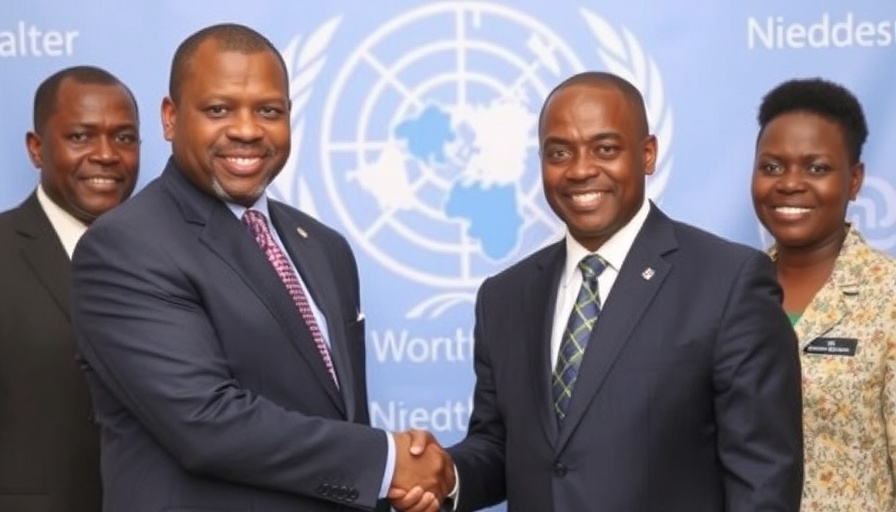
A New Chapter for Tanzania’s Interests in Global Health Leadership
Tanzania is making a notable push to secure the position of World Health Organization (WHO) Regional Director for Africa, rallying behind Prof Mohamed Janabi in the wake of Dr Faustine Ndugulile's untimely passing. This new campaign underlines the nation's commitment to strengthening its influence on global health matters, particularly in light of the impressive legacy left by Ndugulile, whose appointment was celebrated across the East African Community (EAC) until his death shortly before taking office.
Why This Appointment Matters
The role of WHO Regional Director is crucial, particularly as Africa faces numerous health challenges exacerbated by limited funding and infrastructure. With global health on an unpredictable trajectory, appointing a proficient candidate like Prof Janabi is seen as a decisive step forward for Tanzania, which seeks to enhance its health systems through innovative policies. As the executive director of the Muhimbili National Hospital and a seasoned health advisor, Janabi’s experience positions him as a key player in addressing the continent’s pressing health needs.
Prof Janabi's Vision: Transforming African Healthcare
In his recent interviews, Prof Janabi emphasized a vision centered on transforming African healthcare through strategic financing and partnerships. His policy approach advocates for constructing health financing frameworks that blend public and private investments, aiming to amplify resource allocation to neglected health sectors. Such strategies not only reflect a deeper understanding of local health challenges but also promise sustainability in a landscape often hindered by economic instability.
The Diplomatic Race: Gaining Support for Janabi
As Tanzania vies for this prestigious position, the diplomatic undertones of its campaign cannot be ignored. Prof Janabi's unveiling in Zimbabwe as the candidate for the EAC and subsequent meetings with heads of state underline the collaborative efforts to garner regional support. As his competitors emerge from French-speaking West African nations, the game changes, highlighting the geopolitical landscape within which this election unfolds. Tanzania's strategy of mobilizing its embassies to advocate for Janabi paints a picture of an evolving diplomatic initiative aimed at solidifying its role in continental health governance.
What Janabi's Candidacy Represents for Africa
The push for Prof Janabi's leadership at the WHO symbolizes a broader narrative for Tanzania and Africa's health sector—one that underscores autonomy, capacity building, and regional solidarity. As the world grapples with the ramifications of the COVID-19 pandemic, the appointment of a leader from within Africa could signify a transformative shift in how health policies are shaped and implemented on the continent.
A Call to Action: Supporting African Leadership in Global Health
As we witness this pivotal moment in health governance, it is essential for African stakeholders, investors, and policymakers to lend their voices in support of candidates like Prof Janabi. Strengthening African representation in such significant international posts is vital to ensuring that the continent's unique health challenges are prioritized and adeptly addressed.
 Add Row
Add Row  Add
Add 


Write A Comment